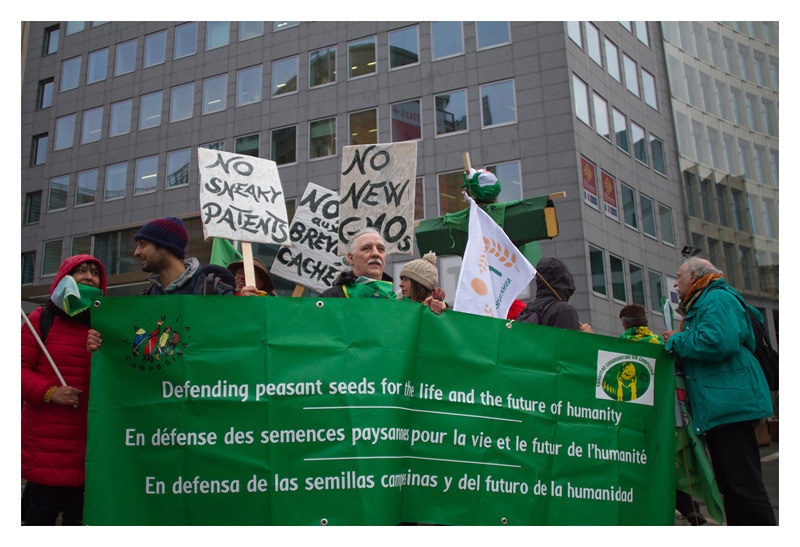The European Commission today published a study, commissioned by the Council of the EU, on “new genomic techniques”, in which it suggests that current GMO legislation is not “adapted to the scientific and technological progress” of new genetic modification techniques. ECVC denounces this attempt by the European Commission to cover up its inaction on the implementation of the current GMO legislation, and also denounces the considerable influence of agribusiness lobbies on the results of this study.
Since the publication of the European Court of Justice (CJEU) ruling on 25 July 2018, which confirmed that all new GMOs must be subject to the provisions of the regulation, the Commission has stubbornly refused to harmonise the application of the law in all EU countries. The harmonisation of the single market is one of the first tasks. In order to justify this position, the Commission is now proposing to amend these regulations so that it is no longer required to apply them.
Echoing the voice of industrial lobbies, the Commission lists the same unfulfilled promises that were made twenty years ago to promote transgenic GMOs: less pesticides, higher yields, adaptation to climate change. 90% of the patents requested on new GMOs, however, concern pesticide plants that have been modified to be herbicide tolerant. While the Commission claims today that new genetic modification techniques have the potential to “contribute to a more sustainable food system in the framework of the objectives of the European Green Deal and the Farm to Fork Strategy”, ECVC reiterates that only farmer-based agroecology can provide abundant harvests that are resilient in the face of climate change while at the same time stopping the use of pesticides, which will never be possible through the modification of a few genes.
The Commission also claims that the current regulation is not applicable because it is not possible to distinguish these modified versions from traditionally bred plants. Yet the European Union is the champion of traceability, at present being able to label many quality products that cannot be distinguished by genetic analysis (PDO, free-range farming, etc.).
In addition, genetic techniques can distinguish any plant or animal propagated in the laboratory by culturing and then regenerating their cells in vitro, cultures that are essential for all genetic modification techniques developed today. These in vitro cell cultures generate multiple unintended genetic modifications that never occur naturally. This is undoubtedly why the European Commission has discreetly modified the request of the European Council, which asked it to apply the CJEU ruling. Indeed, while the CJEU confirms that all genetic modification techniques that appeared or were mainly developed before 2001 fall within the scope of the regulation, the Commission has removed the term “mainly” and is only interested in techniques that appeared after 2001. This allows it to exclude in vitro cell cultures along with all other techniques that appeared shortly before 2001 but mainly developed after that date, such as transgenesis, the regulation of which is not disputed.
The European Commission has announced the opening of a public consultation to explore policy options in the coming months. For ECVC, the Commission must quickly review its message in order to open a public debate based on facts and not mistruths.
In order to guarantee the right of farmers to freely choose and to have transparent access to information about the crops they grow, in addition to guaranteeing the right of citizens to know what kind of products end up on their plates, ECVC opposes any modification of the current European regulation. We reject the appropriation of the food chain by a handful of multinationals as a result of the patents they register on these GMOs. For this reason, and by virtue of the precautionary principle, all GMOs must remain regulated by EU GMO law, as confirmed by the Court of Justice of the European Union in its judgment of 25 July 2018.

